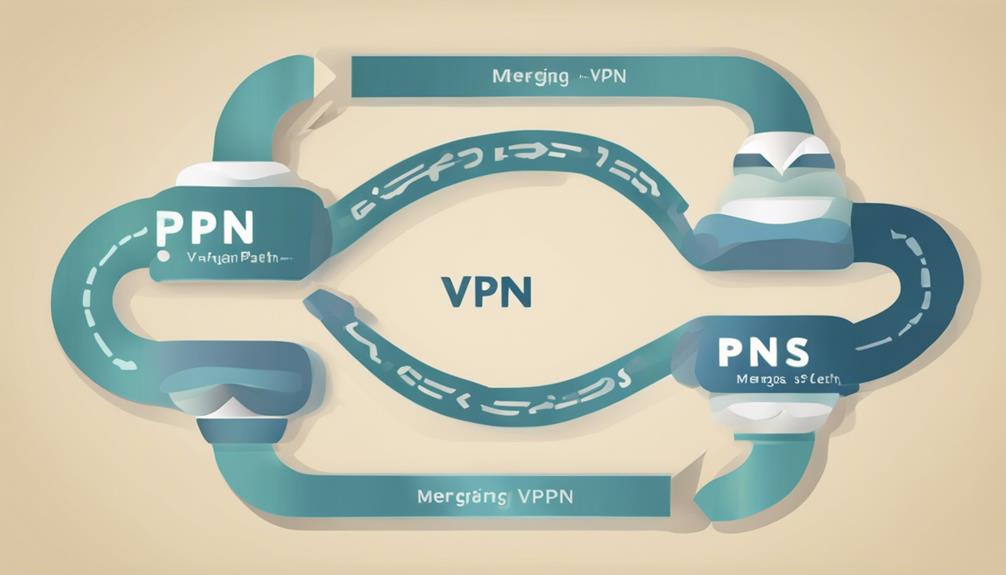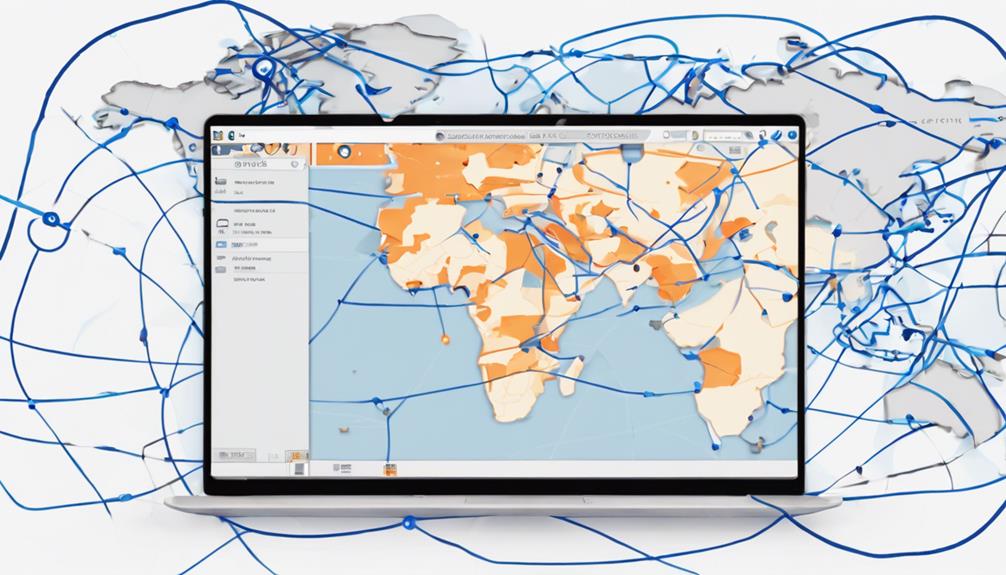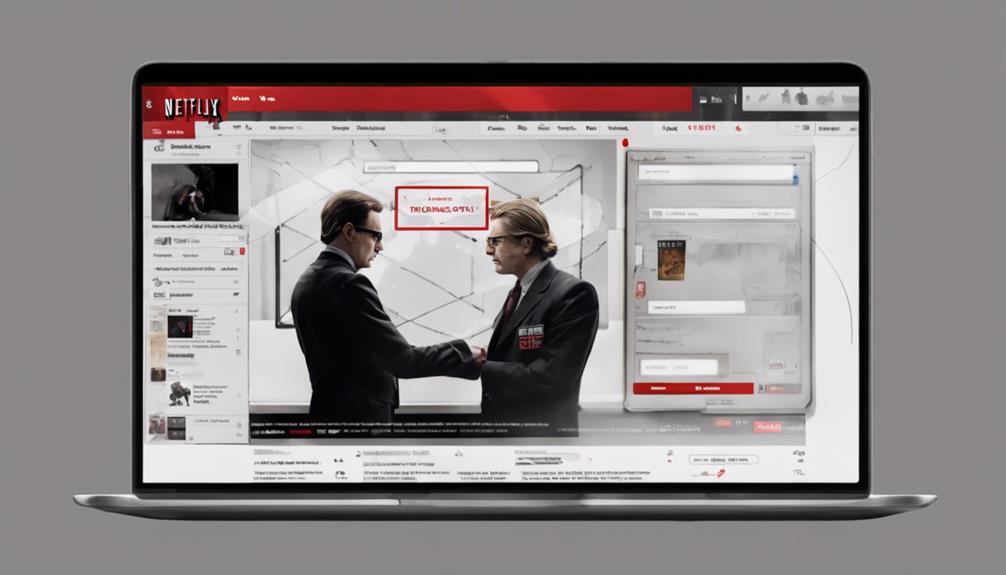When considering if SOCKS5 is the same as a VPN, it's crucial to recognize that SOCKS5 proxies lack the encryption and extensive security features that VPNs provide. While SOCKS5 may offer faster speeds and efficiency for certain tasks like torrenting, VPNs excel in overall online security, encryption, and user privacy protection. Understanding these distinctions can help you make an informed choice based on your specific needs and priorities in safeguarding your online activities. Learning more about the differences between SOCKS5 and VPNs can provide valuable insights into selecting the right solution for your requirements.
Key Takeaways
- SOCKS5 proxies lack encryption, while VPNs offer high-level encryption for data security.
- VPNs have strict no-logging policies, whereas SOCKS5 proxies do not prioritize privacy.
- SOCKS5 proxies focus on speed, ideal for tasks like torrenting, while VPNs may slow down connections.
- VPNs ensure privacy with a single IP address, while SOCKS proxies reduce the risk of bans.
- SOCKS5 proxies optimize torrenting performance with faster download speeds and P2P compatibility.
Key Differences Between SOCKS5 and VPN
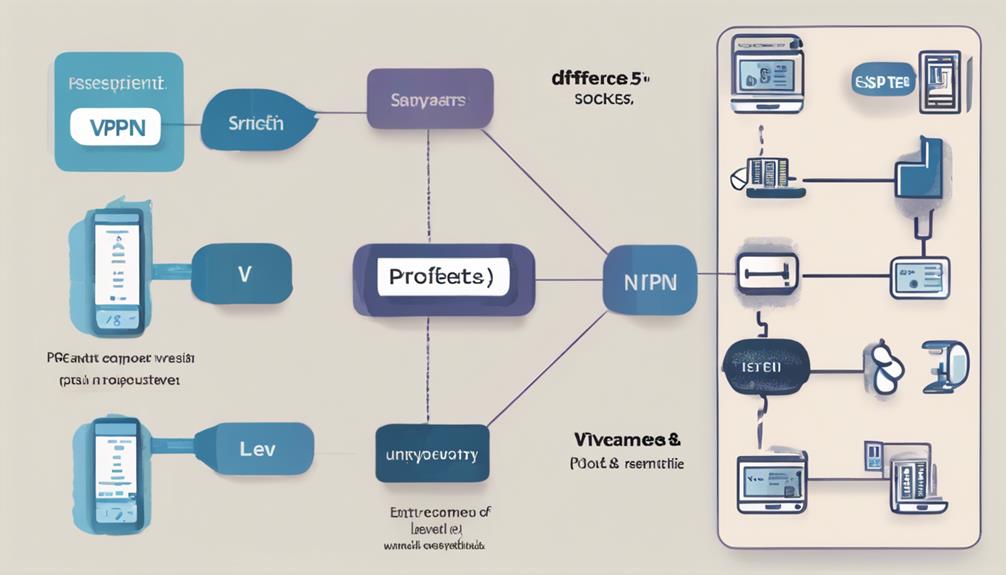
Generally, understanding the key variances between SOCKS5 proxies and VPNs is essential for selecting the most suitable tool for your online activities.
SOCKS5 proxies don't encrypt data traffic, unlike VPNs that secure all data transmissions. While SOCKS5 proxies offer faster speeds due to the absence of encryption, they lack the thorough online protection provided by VPNs.
VPNs excel in online security with features like AES 256-bit encryption and a Kill Switch, ensuring a higher level of privacy and data protection. Additionally, VPNs adhere to a strict no-logs policy, prioritizing user privacy, whereas SOCKS5 proxies may log and even sell user data.

2. PIA - Ton of servers world wide, but especially great in United States.***

3. NordVPN - The bigger the better! A great choice everywhere!***

*** Offers money-back guarantee. So try them risk free!
Consider these factors carefully when deciding between a proxy and a VPN for your online endeavors.
Encryption and Security Features Compared
Comparatively, VPNs stand out for their robust encryption and security features, offering a thorough shield against data breaches and unauthorized access. VPNs use high-level encryption and strict log-free policies to prioritize data security and privacy, preventing monitoring by ISPs, governments, and hackers. On the other hand, SOCKS5 proxies do not encrypt data, relying on the SSH protocol for connection security without encryption. Users who prioritize encryption and privacy over speed should opt for VPNs due to their extensive security measures. Below is a comparison table highlighting key differences between VPNs and SOCKS5 proxies regarding encryption and security features:
| Features | VPN | SOCKS5 Proxy |
|---|---|---|
| Encryption | High-level encryption | No encryption |
| Security Policies | Strict log-free policies | Limited security |
| Data Transfer Privacy | Prevents monitoring | Vulnerable to breaches |
| Protocol | Various | SSH |
| Privacy | Emphasized | Limited |
Speed and Bypassing Restrictions
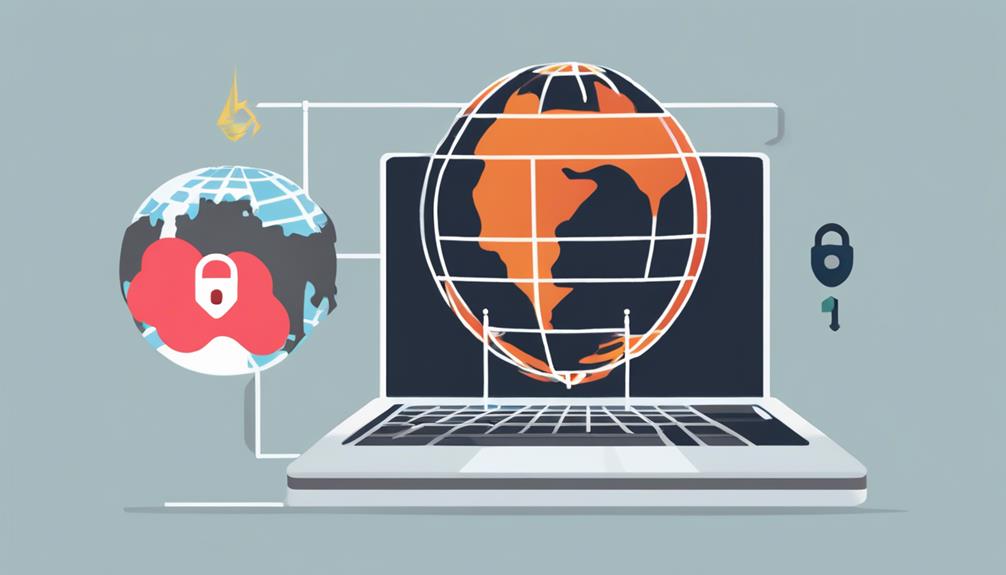
When aiming to maximize performance and efficiently bypass restrictions, SOCKS5 proxies emerge as a preferred choice due to their emphasis on speed and accessibility over encryption.
SOCKS5 proxies are known for their high-speed tasks like torrenting, making them ideal for users who prioritize swift data transfer. In contrast, VPNs, which prioritize security and encryption, might sometimes slow down internet connections compared to SOCKS5 proxies.
For bypassing geo-restrictions and accessing content quickly, SOCKS5 proxies offer a seamless experience. While VPNs are recommended for users focusing on data security and privacy, SOCKS5 proxies excel in providing excellent speed and efficient data transfer capabilities.
Whether you need to quickly access content or handle data-intensive tasks, SOCKS5 proxies are a preferred choice for maximizing performance without compromising accessibility.
Privacy and Logging Policies
To understand the nuances of privacy and logging policies between SOCKS5 proxies and VPNs, it's essential to evaluate their respective approaches to data retention and user anonymity. VPNs typically enforce stricter no-logging policies compared to SOCKS5 proxies.
While some free VPN services may engage in logging user browsing activity, premium SOCKS proxies prioritize privacy and security, although their logging practices may vary. VPNs offer a single IP address, which can result in potential bans on certain platforms or services.
Conversely, utilizing multiple IPs from SOCKS proxies reduces the risk of being banned or facing online restrictions. When considering privacy and logging policies, it's imperative to opt for services that uphold robust no-logging policies to safeguard your browsing activity and online anonymity.
Usage for Torrenting and P2P
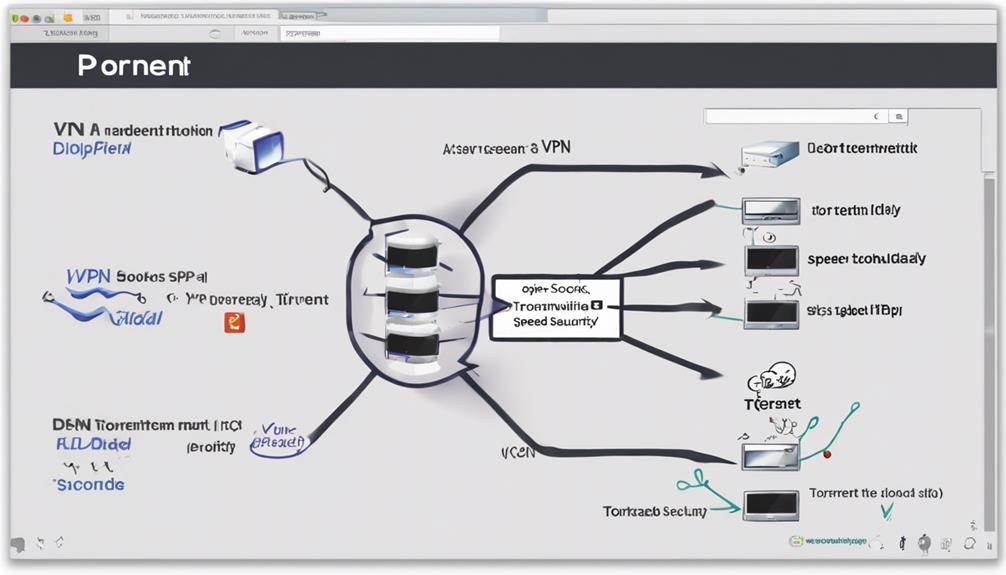
For optimized performance and faster download speeds in torrenting and P2P activities, utilizing SOCKS5 proxies is highly recommended. When it comes to torrenting, SOCKS5 proxies offer several advantages over VPNs, including:
- Faster speeds for downloading torrents efficiently.
- Better compatibility with P2P activities.
- Optimized performance for high-bandwidth activities like torrenting.
- Enhanced torrenting performance due to efficient handling of data.
- Improved download speeds compared to using a VPN for torrenting.
ISP Visibility and Free Proxy Considerations
Consider the potential risks and implications of ISP visibility and utilizing free proxy services when using SOCKS5 proxies. ISPs can still monitor your traffic even when using SOCKS5 proxies, leading to privacy compromise.
Free SOCKS5 proxies, known for selling user data to third parties, pose significant security risks. It's advisable to avoid free proxies due to performance issues as well.
Opt for paid SOCKS5 services for better security, privacy, and performance. Prioritize the selection of SOCKS5 proxies based on security, speed, and reliability rather than cost.
Frequently Asked Questions
Can I Use SOCKS Without Vpn?
Yes, you can use SOCKS without a VPN to route your internet traffic through a proxy server. This setup can offer benefits like increased speed for specific tasks. Consider your security needs carefully before deciding.
Can SOCKS5 Be Detected?
Yes, SOCKS5 can be detected, impacting your online experience. Websites and networks employ methods like IP blacklisting and CAPTCHA challenges to identify SOCKS5 proxies. Advanced techniques can block access, restricting streaming, torrenting, and geo-blocked content.
What Is the Difference Between a VPN and a Proxy?
When comparing a VPN and a proxy, understand that a VPN encrypts all traffic for thorough security, while a proxy, like SOCKS5, selectively routes data without encryption. Both serve different purposes in safeguarding your online activities.
What Is the Use of Socks5?
Use SOCKS5 for routing internet traffic through a proxy server, providing anonymity and bypassing restrictions. It doesn't encrypt data like a VPN but excels in speed and compatibility for torrenting and high-bandwidth tasks.






